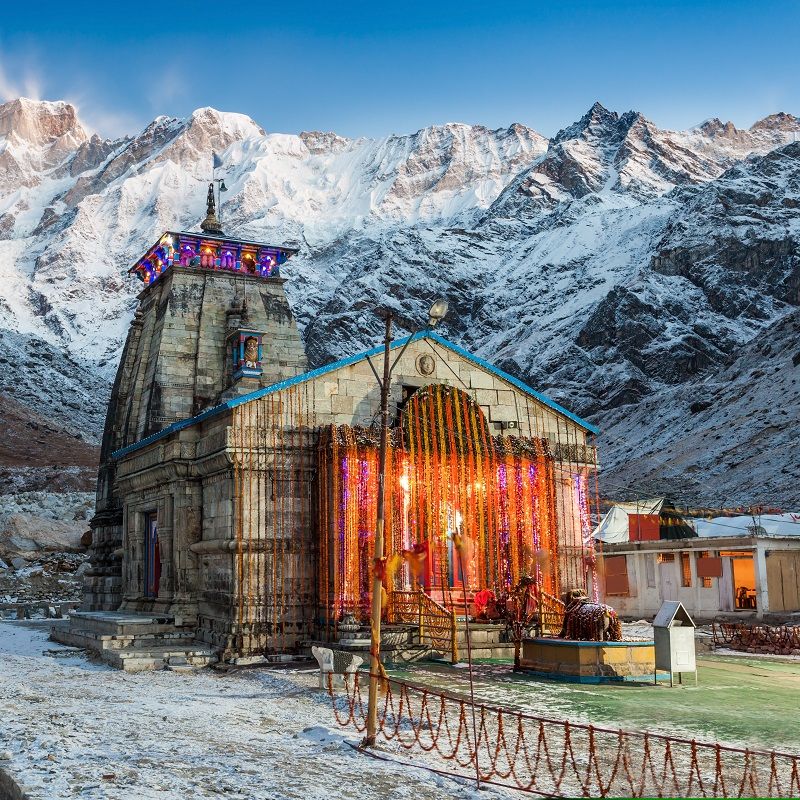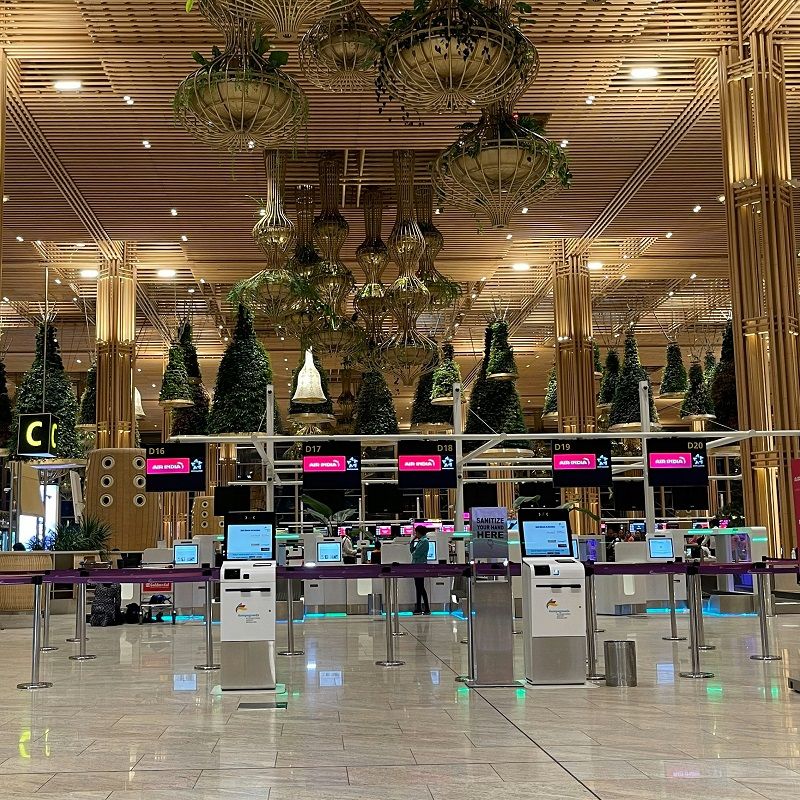
Within the French accents of Puducherry, a sanctuary welcomes those in search of the elusive quiet. By Siddharth Dasgupta

The famous American writer Mark Twain would spend every summer at his in-laws’ estate in Elmira, New York. His sister-in-law, Susan, built him a small study split up from the
main house at Quarry Farm. In this octagonal Victorian gazebo, surrounded by the warmth and tangibility of solitude, Twain would go on to pen the first drafts of many of his seminal works, including The Adventures of Tom Sawyer, The Adventures of Huckleberry Finn, and A Connecticut Yankee in King Arthur’s Court.
Twain’s not the only one. Gertrude Stein would write while ensconced in the driver’s seat of her Model T Ford. Ernest Hemingway chose the large desk and bookcase-lined library at Finca Vigía—his home in Cuba, built by the Catalan architect Miguel Pascual. Maya Angelou would rent a hotel room, sans any decoration save for the Bible, in her hometown, paying for it by the month. Agatha Christie, too, would choose the comforting anonymity of hotels, favouring Room 411 at the Pera Palace Hotel in Istanbul.

As is amply evident, writers will go to great lengths to find their writing sanctuaries. For me, the endeavour proved a touch less arduous when I checked myself into Gratitude Heritage, a restored homestay in the heart of Puducherry. For bohemians in the know, Puducherry has long been the preferred choice for lost weekends—the kind where a spiritual retreat could turn into parties rife with delicious toppings of hedonism.
The French hangover in Puducherry is still strong—ranging from language and street names to boutique hotels brimming with bliss and conversations dappled in foreign inflections. This seaside town on India’s southeastern coastline behaves like very few do. Half the town prances to the scents and spices of its Tamilian heritage, while the other half—White Town—revels in a philosophy of laissez-faire. The resulting Franco-Tamilian-Creole mélange is a treasure trove of aesthetics, traditions, histories, and cultural anomalies.
I enter Gratitude Heritage through a small gate on Rue Romain Rolland. I’m greeted by a palette of rich mustard and crisp whites on walls, ceilings, corridors, and recesses, framed against dark wood. I’m immediately drawn towards an inner courtyard. This oasis of calm opens out to an assemblage of foliage and birds, content in their solitude. On one side lies an elevated porch, leading towards the dining area, a kitchen and a private lounge, while the other half gives way to a couple of rooms and their joint corridor. The upper level houses more rooms, the owner’s residence, and a small library. In the courtyard, wrought-iron benches, tables laid out for breakfast, tea and coffee on tap, and chirping birds are akin to characters playing their parts in a scene. What I’m also alert to, fairly immediately upon entering, is that Sri Aurobindo and Mirra Alfassa a.k.a. The Mother hover in these spaces—through their teachings and their legacies.

Gratitude Heritage is owned by the Saikia family, with Jyoti Cariappa Saikia creating and fostering its personality with friend and work partner, Kakoli. “This home is very much an offering to The Mother and Sri Aurobindo,” Jyoti’s son, Sid, tells me over breakfast. The spiritual savant and his kindred spirit are Puducherry’s focal points; their utopia of Auroville is an alternative formula for society, one created through harmony and creative synergy. It’s these elements that are in sharp focus at the property’s entrance lounge, which welcomes you with large portraits of the two, a robust selection of books, and couches on which an entire day could be spent drifting in the drowsiness of the mellow light.
Over eggs, croissants, dosas, and glasses of freshly-squeezed juice, Sid takes me through some of Gratitude Heritage’s features. “It’s the quietness of our French colonial heritage home that draws people,” he expounds. “Writers, artists, seekers, dancers—anyone looking for peace finds it here.” Rough estimates place the heritage home as being over 150 years old. An embedded iron box in Room 4 might point to its exact age, but in a nod to the adamancy of mystery, the owners have decided to let the unknown linger. What’s without question is that the property’s Franco-Tamilian roots exhale serenity for the artist who comes looking for it.

I saunter into the private lounge with my diary, a pen, and the need to simply be. A forsaken French classic on loop, playing on the old gramophone player, brings to mind images of 1920s Paris, kissed by the genius of literary greats. Through tall open arches, I witness the courtyard’s trees, including a central mango tree swaying to the strains of the song. A few words emerge. The song continues to play.
With a few dialogues, a couple of brief character sketches, and the coda to a poem hovering in the air, I decide to take a walk. Tiny twigs fall on Gratitude Heritage’s old Madras terrace roof in rhythm.

The owners and the team from Intach Pondicherry have done a wonderful job of restoring the property through traditional methods. The new portions blend into the old. An authenticity of architectural style prevails; in accordance with its heritage, the address sprouts high columns, generous arches, and—borrowing from Jyoti and Kakoli’s backgrounds in textile and design—decor that harks back to the period. I find intimacy to be one of the more compelling calling cards at the heritage home. There are only eight rooms here, divided between the ground and first floors on either side. The rooms are fairly identical—compact, earth-toned, and old-world, showcasing furniture salvaged from antiques belonging to original homes of that period and Anglo-French furnishings. Room 5 has a floor in indigo, for anyone wishing to find inspiration in notes of aqua.

This is very much a heritage home experience, and not a hotel. That difference is vital for anyone expecting to be pampered—you won’t be. The staff is warm and efficient, but not at anyone’s beck and call. Breakfast is served between 8:30 and 9:30 am, and you’re on your own after that. To maintain the ambience of tranquillity and the home’s fragile architectural ecosystem, there are a few rules that can get a touch annoying at times—no smoking, no food in rooms, no footwear within the house, and all belongings to be tucked in the cupboards.

Life at Gratitude Heritage idles by in its distinct language. I write, over cups of coffee. I dance to old French songs. I write some more. But writing is sometimes as much about throwing oneself into the pleasures of life, as it is about solitary living. For the former, luckily, there’s always Puducherry. I walked around the town, and across the French Quarter’s charms. At Coromandel Café, pizzas drizzled with truffle oil and fresh buffalo mozzarella tempt me. The brasserie is housed at La Maison Rose, a boutique and luxury space run by a French designer, and finds space in a mauve-coloured villa that seems plucked out of an artist’s mind.
An early morning walk brings me to Sri Aurobindo Ashram Quarter. You know you’ve reached when the buildings take on a tone of elegant grey, complemented by windows of dark wood. It’s that word that plays in my mind again, as my feet wander across a large community kitchen, living quarters, and tiny lanes filled with the sweet-smelling scent of solitude—‘sanctuary’. Luckily, I’ve arrived on a day when they’re allowing people into Sri Aurobindo’s apartment. This gorgeously cultivated space houses old portraits, paintings, records, and an aesthetic that’ll remind you of the feted designer Sabyasachi Mukherjee. I take in the history in silence. I pick up some books, in English and Bangla, from the adjoining library. I utter a silent prayer at the Samadhi, part of the same complex.

Life in Puducherry drifts along thus. Much like the waves that come crashing against the mile-long promenade and its pier, words arrive and then recede, only to arrive again. I discover more gems: a sundowner at Lighthouse Grill at The Promenade, where stunning ocean views go down best with martinis; the beautiful surprise of Sunday Mass being conducted in French, at the peach-coloured marvel that is the Eglise de Notre Dame des Anges; some curios and appropriately boho clothing for friends from the ochre-hued boutique Domus; a meal bursting with all manners of Tamil fieriness within the central courtyard of the Franco-Tamilian alchemy of Maison Perumal.
As I prepare to leave, another word arrives in my diary. It finds place beside the words penned over the past few days. The word is ‘gratitude’. Perhaps Stein and Hemingway would concur.
Getting There
There are direct and connecting flights to Puducherry from major Indian cities. You could also hire a private taxi from Chennai, roughly 150 km or three hours away.
Stay
The cost of staying at Gratitude Heritage starts from INR5,000. Book it here.
Related: 6 Airbnbs in Puducherry That Sell Out Faster Than Your Favourite City Hotel










